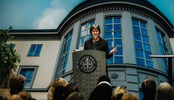Do military coups affect economic development?
Previous economic literature has primarily focused on military coups as incidents that create broader political instability regardless of whether they overthrew autocratic or democratically elected leaders. In his research Erik Meyersson has tried to find out whether military coups overthrowing autocratic or democratically-elected leaders cause different consequences for economic development. Using a dataset of 457 individual coup attempts in 94 countries during the post-World War II era and employing several empirical strategies including comparing of successful versus failed coup attempts, matching methods, as well as panel data techniques, professor Meyersson shows that a military coup overthrowing a regime in a country like Chad may have very different consequences than a military leader overthrowing a democratically elected president in a country like Chile. In the former, a coup appears to constitute the manner in which autocracies change leaders. In the latter, coups typically imply deeper institutional changes with long-run development consequences.
After carrying out analysis of military coup attempts over the period 1950-2010, professor Meyersson concludes that conditional on a coup-attempt taking place, the effect of coup success depends on the pre-intervention level of democratic institutions.
Analysis also revealed that coups overthrowing democratically elected leaders fail to provide the opportunity for engaging in unpopular but much needed economic reforms. This type of coups tend to reverse important economic reforms, especially in the financial sector while also leading to increased indebtedness and overall deteriorating net external financial position, and an increased propensity to suffer severe economic crises. Analysis of coups overthrowing democratically elected leaders exposes reduction in social spending that suggests a shift in economic priorities away from the masses to the benefit of political and economic elites.
If interested in extensive scientific literature review, case studies and in depth analysis of development effects of military coups and analysis of coup attempts, we invite you to read working paper of professor Meyersson "Political Man on Horseback Military Coups and Development".
If interested in figures and graphs representing successful and failed coup attempts since 1950, we invite you to read the policy brief "Evaluating the Political Man on Horseback – Coups and Economic Development" below or download it here.




